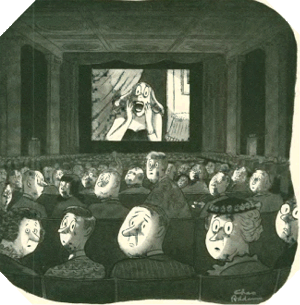 |
| defined six functions of language |
“Languages differ essentially in what they must convey and not in what they may convey.”
... Roman Jakobson (1896-1982), Russian linguist
curious people | curious events | curious juxtapositions | iconoclasts | ambiguity | whatever

When your language routinely obliges you to specify certain types of information, it forces you to be attentive to certain details in the world and to certain aspects of experience that speakers of other languages may not be required to think about all the time. And since such habits of speech are cultivated from the earliest age, it is only natural that they can settle into habits of mind that go beyond language itself, affecting your experiences, perceptions, associations, feelings, memories and orientation in the world.
ReplyDeleteThe habits of mind that our culture has instilled in us from infancy shape our orientation to the world and our emotional responses to the objects we encounter, and their consequences probably go far beyond what has been experimentally demonstrated so far; they may also have a marked impact on our beliefs, values and ideologies. We may not know as yet how to measure these consequences directly or how to assess their contribution to cultural or political misunderstandings. But as a first step toward understanding one another, we can do better than pretending we all think the same.
Spanish and its insistence on giving everything inert or living a gender is a case in point.
ReplyDelete